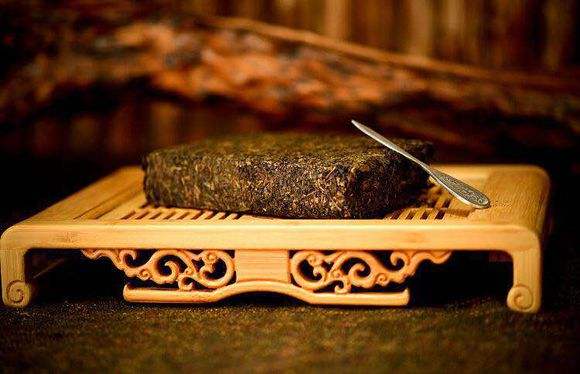008613762194311 | 008613762194311 tour-zhangjiajie@outlook.com
008613762194311 | 008613762194311 tour-zhangjiajie@outlook.com
Chinese Dark Tea has a history of over four hundred years. It is one of the six tea categories and only exists in China. It is also an indispensable beverage for the Chinese ethnic minorities in their daily life. The most well-known dark tea in China is produced in Anhua County, Yiyang City. Dark tea has a pleasant earthy and strong bouquet yet soft on the palacte, and this aroma distinguishes itself from the other 5 major tea groups. It is great to drink this tea especially after meals. The beneficial tea microbes, formed as a result of 100% fermented and hand crafted, is the King of all teas. It is a century's old treasure art form for the process of making dark tea. Throughout history, royalty and tea lovers have highly recognized the taste and the health benefits of drinking dark tea. As the complexity of the tea develops and matures over time, the value if dark tea increases with age.
indispensable beverage for the Chinese ethnic minorities in their daily life. The most well-known dark tea in China is produced in Anhua County, Yiyang City. Dark tea has a pleasant earthy and strong bouquet yet soft on the palacte, and this aroma distinguishes itself from the other 5 major tea groups. It is great to drink this tea especially after meals. The beneficial tea microbes, formed as a result of 100% fermented and hand crafted, is the King of all teas. It is a century's old treasure art form for the process of making dark tea. Throughout history, royalty and tea lovers have highly recognized the taste and the health benefits of drinking dark tea. As the complexity of the tea develops and matures over time, the value if dark tea increases with age.
History of Dark Tea (Hei Cha)
Legend told on the ancient Silk Road, tea caravan encountered rain, the tea moistened by rain mildew and became worthless. Tea merchants can't help but abandon it and went away. Next year, an outbreak of dysentery made many people died in the village. When people got nothing to eat, tea merchants gave the mildewed tea to the poor families. Miracle occurred. Sick people recovered from the illness.
According to historical records,dark tea emerged much earlier than the legend told. According to "History of the Ming Food and Money," it said: "Shenzong Wanli thirteen years (AD 1585) ... ... Tea is exchanged for horse, As Hunan tea is cheap,cross-border private and selling of Hunnan hei cha prospered"
Varieties of Dark Tea (Hei Cha):
Sichuan Dark Tea,Sichuan Hei Cha also named Sichuan Route Tea (四川边茶) including Southern route tea(南路边茶)and Western route tea(西路边茶);
Sichuan Pu'er Tea: mainly produced in Yibing and its neighboring areas of Sichuan province;
Hubei Dark Tea, Hubei Hei Cha;
Laoqing Tea: mainly produced in Chibi, Xianling, Tongshan, Chongyang of Hubei province;
Hunan Dark Tea, Hunan Hei Cha;
Raw Dark Green Tea(黑毛茶);
Dian-Gui Dark Tea(Dian-Gui Hei Cha 滇桂黑茶);
Yunnan Pu'er Tea;
Liupu Tea(六堡茶),originally produced in Liupu village, Changwu of Guangxi province, Now its producing areas includes more than 20 counties of Guangxi province;
Bainiu Tea(白牛茶), produced in Jinxiu, Guangxi province;
Liudong Tea(六垌茶), produced in Xing'an, Guangxi province;
Xiuren Tea(修仁茶), produced in Lipu, Guangxi province;
Wantian Tea(宛田茶), produced in Lingui, Guangxi province;
Health benefits of Dark Tea (Hei Cha)
Replenish diet nutrient
Dark Tea (Hei Cha) contains rich nutrients, most notably vitamins and minerals, plus protein, amino acids, sugar substances.
Help digestion, oily solution, make intestinal tract unhindered
Dark Tea (Hei Cha) rich in caffeine, vitamins, amino acids, phospholipids, etc. help body's digestion, regulate fat metabolism, caffeine stimulation,can also enhance the secretion of gastric juice volume, thus enhancing the appetite and help digestion
Lipid-lowering, weight loss, softening of human blood vessels, prevention of cardiovascular disease
Dark Tea (Hei Cha) can reduce blood fat and the role of peroxidase.
Anti-oxidation, anti-aging, longevity
Dark Tea (Hei Cha) is not only rich in antioxidant substances such as catechins, tea pigments, flavonoids, vitamin C, vitamin E, D a-carotene, etc., but also contains large amounts of trace elements which also have antioxidant effect such as zinc, manganese, Copper (SOD composition of elements) and selenium (GSHPX the composition of elements) and so on. Its catechins, theaflavins, theanine and tea polysaccharides, in particular the more complex content of flavonoids and so has the function of anti-oxidation, scavenging free radicals and delaying cell senescence.
Anti-cancer, anti-mutagenic
The study made by Hunan Agricultural University on Dark Tea with a model of tumor cell SGC7901 adopting cutting-edge technology of High Throughput Screening has proven that Hei Cha has significant inhibiting effect on tumor cells.
Antihypertensive
It has long been reported that tea has a role of lowering blood pressure. Recently, the Japanese reported that theanine, an unique amino acid can activate dopaminergic neurons, playing an inhibitory role in blood pressure. In addition the catechins and caffeine in tea can relax blood vessel walls and increase the effective diameter of blood vessels, decreasing blood pressure through vasodilation.
Previous Page:Tea Foods
Next Page:History of Chinese Tea